School Transformation: a MUST, Not a MAYBE
During a speech in 2005, Apple’s iconic founder and then-CEO Steve Jobs famously said, “You can’t connect the dots looking forward; you can only connect them looking backwards.” No truer is this statement, perhaps, than when applied to the K-12 public education system in our country. The brokenness that we face today is not borne out of bad intentions. Instead, each ‘dot’ from the past represents a hallmark moment throughout the evolution of what is arguably America’s most critical institution.
It was Horace Mann, a 19th century education reformer and politician, who created the first statewide system of professional teachers in America with the goal of teaching students an organized curriculum of basic content. However, this didn’t impact every kid until 1918, when completing elementary school became mandatory in every U.S. state. Classroom design, the role of the teacher, hands-on material, an emphasis on testing and bussing have remained relatively the same over the years. Those four ‘basic content’ areas that Mann instituted are still taught today: math, English, science and history.
American society has changed immensely since the 1800s; however, schools haven’t followed the same trajectory. Our nation is being called to transform the education system from broken to working. Perfect isn’t the goal—we need to aim for functional.
Two questions and a couple of oft-repeated responses come to mind:
How do we move education to the forefront of the minds of all citizens?
What can individuals do to move schools into the 21st century?
“My child is doing well in school; this does not pertain to me.”
“I made it through the K-12 public school system, so the next generation can, too.”
What do we know about education today?
According to The Atlantic, 81% of Americans get their news through websites, apps, or social platforms. The leading topics of news videos on YouTube include disasters, government, protests/riots, politics media, crime and celebrity/entertainment. Notably, education appears nowhere on this list. The average citizen has their own perception of the most important social issues from what they are exposed to by the mass media. As such, it is easy for the issues plaguing the K-12 public school system to move to the backburner (or off the stove completely).
As a result, education has become a ‘third-rail’ issue. It is too big, too complex, and frankly, too political. Yes, there are lobbyists, advocates and leaders talking about what needs to change in the system, and even pushing for (often top-down) solutions. However, many times those in power base their decisions upon their own experience with school and the opinions that they’ve built up throughout the years rather than a holistic and more modern perspective. This is where we, as a society, have gone wrong.
Education is no longer valued as a top priority in our country, and a general sense of apathy has set in related to transformative work of the system as a whole.
Just how can we as a society fix this?
It takes a rising of the people. A collective interest in the system as a whole. A willingness to accept change as part of that process. And a breaking down of barriers that stand in the way.
As we celebrate the 100th anniversary of school as a legal requirement in our country, it’s time to start treating it with the same level of responsibility and accountability from a social perspective.
A few unsettling realities
Compelling statistics and facts related to the K-12 public education system like these are endless. As part of #FutureofSchool, it’s our goal that one (or two) of these data points sticks with you. That they make you reexamine your own perceptions. That they challenge you to think about what education could look like outside of the box, instead of what we have now. And maybe, just maybe, that they move you to take action.
The #FutureofSchool is neither a blueprint nor a formula to be applied in schools by master teachers. Instead, it is a philosophy. A state of mind. A willingness to consider different possibilities for educating our students today—that is, our future leaders, entrepreneurs, caregivers, innovators, artists, educators and support personnel. If school is a mandatory experience for all children, then isn’t it our collective civic duty to ensure that it is both as efficient and as effective for as many children as possible?
After all, our civic duty is more than occasionally being a part of a jury. It involves the many social, economic and political responsibilities delegated to us as citizens. Most importantly, our civic duty is an invisible social force that binds us all in embracing 21st century influences such as technology, innovation and a growth mindset. It’s the way that we can ensure we’re doing right not only by ourselves, but by the children in our country currently required to participate in a broken system—one that has an awe-inspiring potential to be so much more.
Will you join me in having this critical dialogue on the #FutureOfSchool?
Mark your calendar to take part in our first monthly Twitter chat on January 31 at 8:30p.m. ET. To join us, log into Twitter and search for the hashtag #futureofschool.


